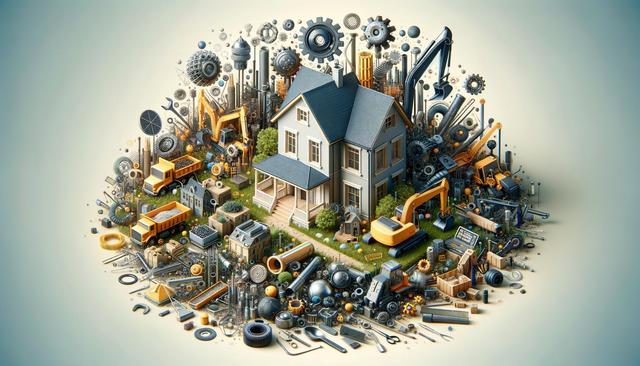The Growing Demand for Construction Services
In recent years, the construction industry has experienced a notable shift as more developers, businesses, and homeowners recognize the importance of well-executed building projects. Construction opportunities are catching on across diverse markets, driven by urban expansion, infrastructure upgrades, and the increasing need for sustainable development. This surge in demand is not limited to large cities—rural and suburban areas are also seeing a rise in new builds and renovations. A reliable construction service can make a significant difference in a project’s success, influencing everything from safety to long-term maintenance costs.
Whether it’s residential, commercial, or industrial development, clients are seeking professionals who can manage projects efficiently and deliver quality workmanship. The role of construction companies now extends beyond just laying bricks and pouring concrete. They are expected to guide clients through planning, permits, design integration, and even post-construction support. As such, firms that offer a comprehensive approach to construction services are standing out in a competitive market.
Key Elements of Quality Construction
Quality construction is not just about the materials used—it’s about the entire process, from initial planning to final inspection. A properly managed project ensures structural integrity, energy efficiency, and long-term value. There are several components that contribute to a high-quality construction process:
- Skilled labor and experienced project management
- Use of certified and durable materials
- Adherence to building codes and safety standards
- Precision in design execution and construction techniques
Each of these elements plays a critical role in ensuring that the finished structure is not only safe but also visually appealing and functionally sound. This is particularly important for commercial spaces where safety regulations are more stringent and the cost of failure is higher. Investing in quality at every phase of construction leads to fewer repairs, lower maintenance costs, and better performance over time.
Technology and Innovation in Construction
The integration of technology in construction services has transformed the way projects are planned and executed. From 3D modeling and digital blueprints to smart building systems, innovation is enhancing both efficiency and precision in construction. These tools allow for better visualization, accurate cost estimation, and improved communication between stakeholders.
Some notable innovations include:
- Building Information Modeling (BIM) for real-time project tracking
- Drones for land surveys and safety inspections
- Green building technologies for sustainability
- Automated machinery to boost productivity
Adopting these technologies not only improves workflow but also reduces errors and rework. As clients become more tech-savvy, construction companies that embrace innovation are better positioned to meet evolving expectations and deliver projects that align with modern standards.
Sustainability and Eco-Friendly Practices
Environmental responsibility has become a central consideration in construction planning. With growing awareness of climate change and resource depletion, clients are increasingly prioritizing sustainable construction solutions. This includes everything from using recycled and locally sourced materials to implementing energy-efficient systems in new builds.
Eco-friendly construction practices offer benefits such as:
- Reduced environmental impact
- Improved indoor air quality
- Lower energy consumption and utility bills
- Enhanced property value
Construction firms that specialize in sustainable building practices are finding new opportunities in both residential and commercial markets. Certifications such as LEED (Leadership in Energy and Environmental Design) are becoming more sought-after, as they provide third-party validation of a building’s environmental performance. This shift toward sustainability is not just a trend—it’s a long-term direction for the industry.
Choosing the Right Construction Partner
The success of any construction project largely depends on selecting the right partner. A construction company should be evaluated not only on price but also on reputation, project portfolio, and approach to client communication. Transparency, reliability, and a commitment to quality are key traits to look for when choosing a contractor.
When vetting potential construction services, consider the following:
- Licensing and insurance coverage
- References and past project reviews
- Project timelines and milestone planning
- Willingness to collaborate and adapt to client needs
Establishing a strong working relationship with a construction partner can prevent misunderstandings and ensure that the project stays on track. The right team will prioritize safety, adhere to budgets, and deliver results that meet or exceed expectations. In a landscape where construction opportunities are catching on, aligning with a capable partner is more important than ever.
Conclusion: Building with Confidence
As the demand for construction services continues to rise, clients are realizing the importance of quality, innovation, and sustainability in achieving successful outcomes. Whether you’re planning a small renovation or a large commercial development, working with a knowledgeable and reliable construction team can make all the difference. From planning and execution to post-construction support, the right service provider ensures that every detail is handled professionally. With construction opportunities expanding across sectors and regions, now is an ideal time to invest in building projects that are safe, enduring, and thoughtfully designed.




Leave a Reply